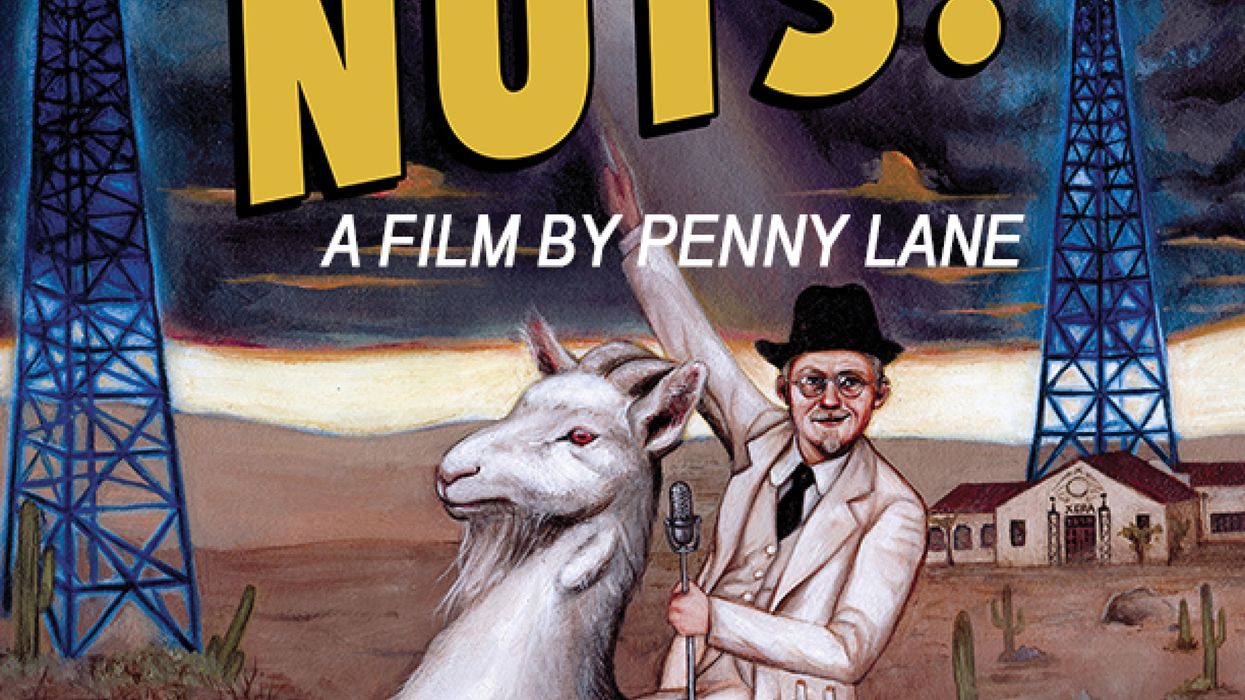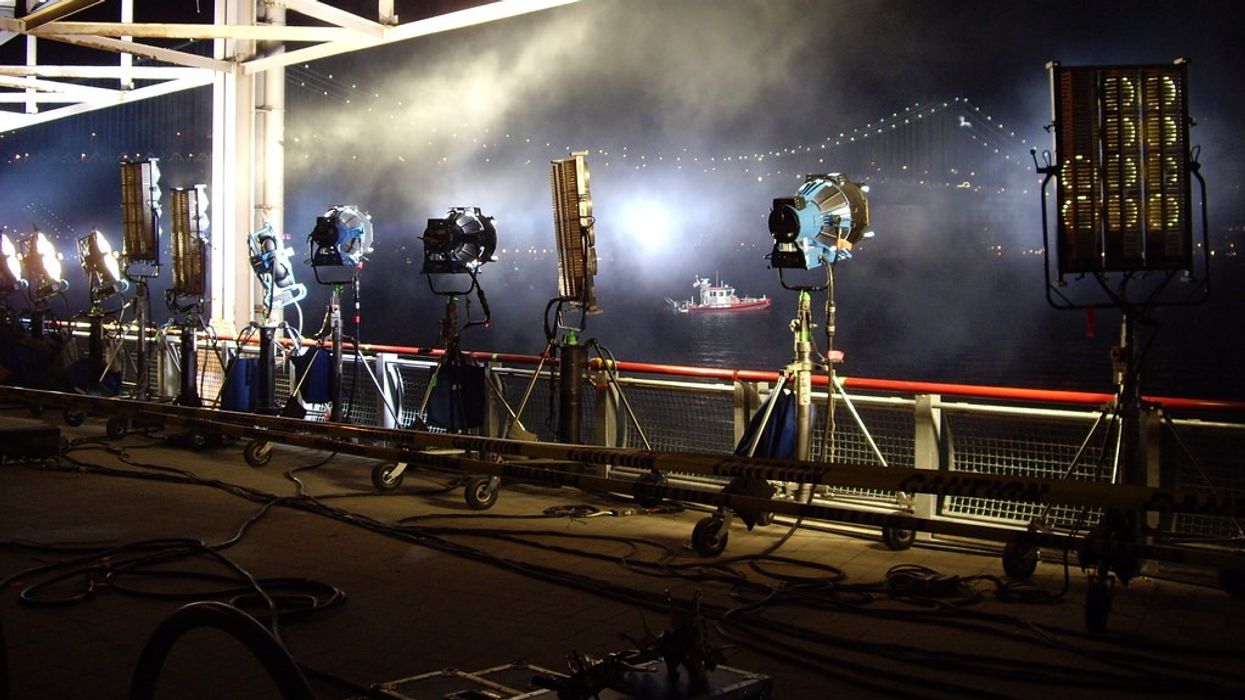Could Footnotes Be a New, Necessary Part of Docs? Check Out Penny Lane’s 'NOTES ON NUTS!'
Every documentary filmmaker invariably realizes there’s just no way to tell the complete story of anything into 90 minutes or less.

Could footnotes be a new creative addendum, not to mention tool for accountability and transparency to our would-be critics? That’s what NUTS! director Penny Lane is experimenting with in her entertaining film companion out this week: NOTES ON NUTS!
Penny Lane, who premiered NUTS! at Sundance this year, has created an interactive database of over 300 footnotes that are a fun puzzle piece to understanding the “truth status” of anything in the film. NUTS! tells the bizarre real-life story of Kansas doctor J.R. Brinkley; it also examines the extent to which we construct reality in a film and beyond. It’s out this week on iTunes, Amazon, BitTorrent, and more, along with the interactive companion NOTES ON NUTS! The notes are complete with a set “truth value” to each note which range from “verified” to “we made this up ourselves.”

Penny sat down with No Film School to explain how other filmmakers are using the idea of some form of footnotes, as well as why, from both an artistic and pragmatic perspective, footnotes could be a winning proposition.
NFS: Do you see a documentary film appendix like "Notes on Nuts!" as something that could catch on with other doc filmmakers?
Penny Lane: Absolutely yes; it already is and has. I felt a year ago when I had the idea that it was a very simple idea whose time had clearly come. I had a lot of conversations around then with various people, like Shola Lynch (FREE ANGELA AND ALL POLITICAL PRISONERS), Travis Wilkerson (MACHINE GUN OR TYPEWRITER?), Jeff Malmberg and Chris Shellen (MARWENCOL) and Paul Sturtz (Co-conspirator at TRUE/FALSE), who seemed to think the same and encouraged me to go for it. And over the past year, I've noticed other people having the same idea, some of whom had talked to me first, but even more of whom seem to have had the idea on their own.
Jeff Orlowski (CHASING ICE) wrote...footnotes would help "uphold the principles of the scientific process, and at the same time, demonstrate to viewers that this is information that is accurate and trustworthy."
Rick Prelinger mentioned the idea of footnotes in a Facebook post a few months ago, musing that it would be a way for doc filmmakers to provide sources and context for archival imagery; to keep them accountable in a way, but also to credit the archives and share location info for the next maker. Jeff Orlowski (CHASING ICE) wrote to me that he is planning to employ extensive footnotes for his next film, about our disappearing coral reefs, telling me he thought footnotes would help "uphold the principles of the scientific process, and at the same time, demonstrate to viewers that this is information that is accurate and trustworthy." Theo Anthony, whose beautiful debut feature RAT FILM just premiered at Locarno, is thinking of creating footnotes as "an additional hypertextual map for the film," saying he "would also love to have a way to cite sources and to point people towards more topics and resources that I didn't have time or space to explore in the film."
So when you know SeaWorld or Ben Stein is going to attack you for "lying," maybe it would be best to be proactive with your audience and subjects, rather than wait for the attack and go on the defensive.

NFS: So then, should this catch on with other documentary filmmakers?
PL: I am not in the business of telling other filmmakers how to make their movies. I find that kind of stance -- let me tell you why my personal aesthetic preferences are not just personal aesthetic preferences but objectively correct prescriptions for the future of documentary cinema! -- both distasteful and unhelpful. I would say that I really strongly believe it would be helpful for some other doc filmmakers to think about annotating their films in some way. Maybe not the way I did it, or for the same purposes. I think the most obvious purpose for footnotes would be for filmmakers who are working with important, complicated "social issues" as in the Jeff Orlowski example above (here I have to interject that I hate this language and I think all issues are social issues and all nonfiction films are social issue films because they are about the world we actually live in, so what else could they be, et cetera, but I'll move on) who could only stand to gain trust and authority from sharing sources for verifiable information presented in the film (keeping in mind that the vast majority of the human experience is not verifiable in any way that is conducive to the largely rationalist project of annotation).
More transparency = more trust... maybe.
By the way, I know Michael Moore has done this on his website with at least one of his films; I forget which one. On a more complicated and loaded level, I think also admitting openly when you as a doc director have bent the literal facts in some way in service of story—let's say you have broken chronology, right—may help you get out in front of attacks on the credibility of your film that come from people who have no idea how films are actually made but want to destroy you for whatever reason. So when you know SeaWorld or Ben Stein is going to attack you for "lying," maybe it would be best to be proactive with your audience and subjects, rather than wait for the attack and go on the defensive. More transparency = more trust—maybe.
Thank you, Penny!
Comb through the entertaining NOTES ON NUTS! preferably after you've seen the film for yourself, and see what you think!
Doc filmmakers, what do you think about the future of footnotes for documentaries?












